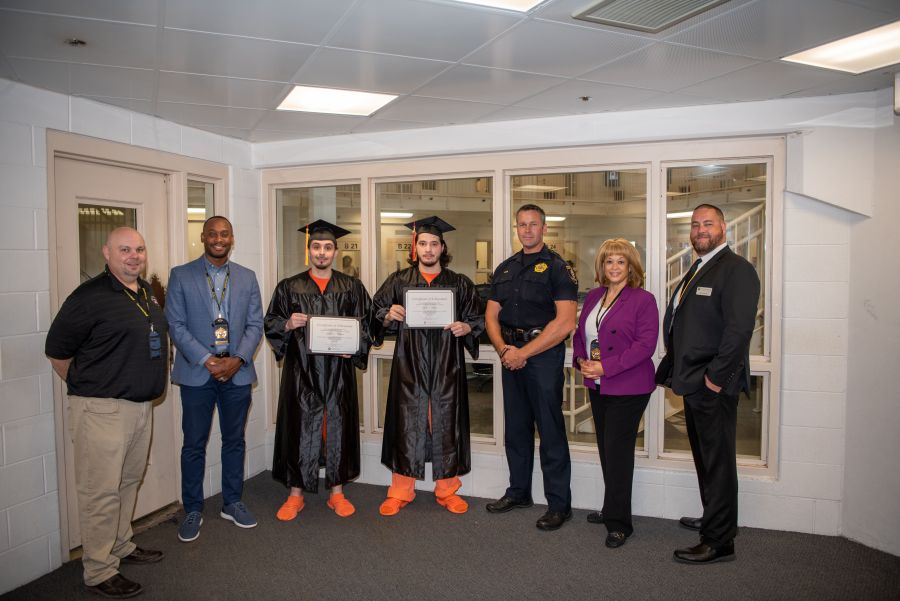


Waubonsee Community College recognized two graduates, Anthony C. Medina and Skyler A. Garcia, who received their High School Equivalency (GED) certificates this summer.
The partnership between Waubonsee Community College and the Kane County Sheriff's Office was built and launched in August 2019 to provide instructional services for individuals currently residing in the Kane County Jail. It follows a national trend towards providing educational opportunities to incarcerated individuals to obtain the necessary skills and knowledge to enter high-demand employment fields upon release.
“It has been the mission of Waubonsee Community College to provide true correctional services to those in custody. Based on their work since 2019, Kane County has experienced a decrease in crime, jail violence, and are one of the only counties in the nation to report a reduction in opioid overdose deaths over the past two years, said Ron Hain, Kane County Sheriff. Hain continued, “providing these support tools to the most marginalized citizens is essential to ensuring overall public safety in our communities.”
Waubonsee's High School Equivalency classes offer instruction in math, science, social studies, language arts, government, and U.S. civics. These classes prepare students to take and pass all sections of the GED® or HiSET exam, leading to the Illinois High School Equivalency certificate.
"Adult Education in a corrections setting works! It is shown to reduce recidivism and give individuals an opportunity to put their background behind them and move forward," said Adam Schauer, Dean for Adult Education Waubonsee Community College.
According to a 2013 study, researchers have found that inmates who participate in correctional education programs have 43 percent lower odds of returning to prison than those who do not. The estimate is based on studies that carefully account for motivation and other differences between correctional education recipients and non-recipients. The study emphasized that employment after release was 13 percent higher among inmates who participated in either academic or vocational education programs than those who did not. Those who participated in vocational training were 28 percent more likely to be employed after release from incarceration than those who did not receive such training (Bozick 2013).
Medina and Garcia faced a myriad of challenges as they received instruction inside the Kane County Jail. They each had to overcome barriers to learning while being incarcerated and persevere through an unprecedented year of disruption to their class schedule because of COVID-19 lockdowns.
"My stepdaughter just got her [diploma] in 2021, so it's like, man, I can share this with her now. It means the world to me, honestly. I'm going in the right direction," said Anthony Medina.
"I'm the first person in my family to get my GED, so it means a lot to me. None of my family has graduated, so it means a lot to get it. It is pretty exciting," shared Garcia.
Waubonsee continues to see success through its partnership with the Kane County Sheriff’s Office. Nearly half the students enrolled in Waubonsee's High School Equivalency Program (across four Kane County Jail housing units) have seen a measurable skill gain after obtaining 50 hours of instruction.
According to the Illinois Community College Board, the average is 120 hours of instruction before seeing a measurable skill gain in a correctional institution. This is a testament to the skill of the instructors working inside the Kane County Jail.
"In Adult Education, our goal is to empower our students to overcome the challenges they face, achieve their educational goals, and open a path to greater opportunity for them and their families. These programs [at the Kane County Jail] are essential to breaking the cycle of recidivism and truly help make our communities safer," added Schauer.
For more information on Waubonsee's High School Equivalency (GED) program, visit www.waubonsee.edu/community-offerings/adult-education.

